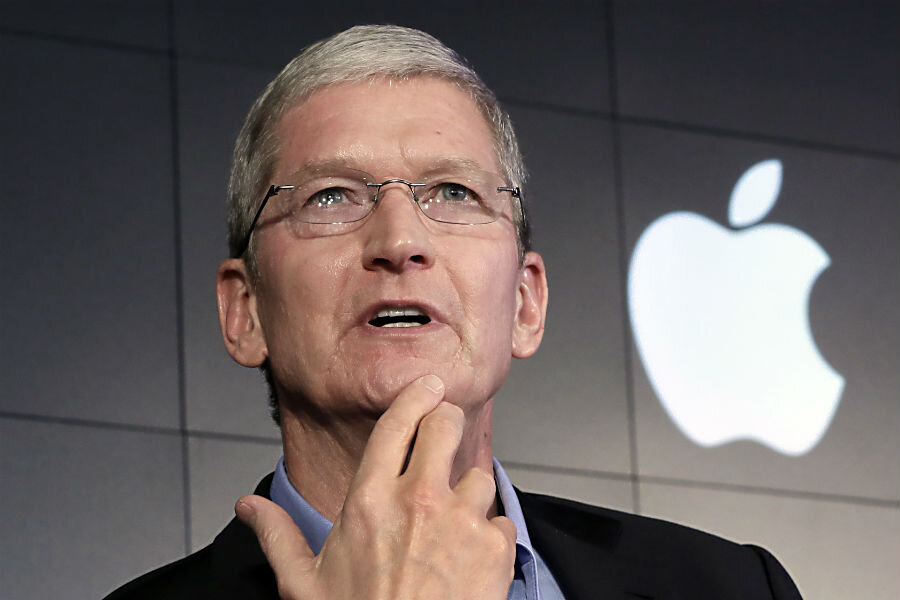Why Apple is refusing to unlock the iPhone of San Bernardino shooter
Loading...
In a bold act of defiance Tuesday, Apple refused to comply with a federal court order forcing the company to help the FBI break into the iPhone of one of the two San Bernardino, Calif., shooters, calling the implications of the government’s demands "chilling."
“Opposing this order is not something we take lightly,” wrote Apple CEO Tim Cook in a statement to customers hours after the Federal District Court for the District of Central California ordered it to build software that would disable some security features of the iPhone 5c that belonged to Syed Rizwan Farook.
Mr. Farook and his wife, Tashfeen Malik, were killed by police after they brutally massacred 14 people at a holiday party in San Bernardino in December.
“We feel we must speak up in the face of what we see as an overreach by the US government,” wrote Mr. Cook.
As part of its ongoing investigation of the San Bernadino shootings, the FBI says it has not been able to hack Farook’s phone, after many attempts. The agency wants Apple’s help because it is worried that the phone’s security features will block it from the data permanently after it fails 10 times to login with the wrong password.
But to Apple, the current order is a harbinger of bad things to come. The company says there is no way to ensure that building a software to help the FBI turn off the security features of Farook’s iPhone would be used just once on that phone.
Essentially, building the software would amount to giving the government a permanent way to get around the company’s encryption software, says Apple, something the company has vehemently fought, claiming that creating a “backdoor” for the government means opening a backdoor for everyone – hackers, terrorists and other criminals.
“The government suggests this tool could only be used once, on one phone. But that’s simply not true,” Cook wrote.
“Once created, the technique could be used over and over again,” he said, “on any number of devices. In the physical world, it would be the equivalent of a master key, capable of opening hundreds of millions of locks — from restaurants and banks to stores and homes. No reasonable person would find that acceptable.”
Apple’s defiance comes at a time when the technology community is fiercely fending off the government’s efforts – and not just in the US – to convince these companies by ingratiation or by force to make it easier for intelligence to eavesdrop on their customers by creating “backdoors” to their encrypted products.
The government says it needs the cooperation of companies that are using increasingly more sophisticated encryption technologies, such as Apple, Facebook, and Google, to nab criminals and terrorists.
“Encryption is making it harder for your government to find criminal activity, and potential terrorist activity,” US Homeland Security Secretary Jeh Johnson told tech leaders at a conference in late April, echoing similar messages from National Security Agency chief Adm. Mike Rogers and FBI Director James Comey, as The Christian Science Monitor has reported.
“We need your help to find the solution,” Secretary Johnson said.
But the solution is not a backdoor for the US government, say tech companies, which are concerned any future policy of this nature would set a bad precedent for other governments around the globe, and leave their customers vulnerable to government spying and intrusions from hackers.
As The New York Times reports, the FBI, instead of asking Congress to pass legislation to resolve the encryption debate, has asked the courts for what Apple calls an “unprecedented” interpretation of the All Writs Act of 1789, which lets judges “issue all writs necessary or appropriate in aid of their respective jurisdictions and agreeable to the usages and principles of law.”
According to the court order, Apple can appeal the FBI’s request.
“To the extent that Apple believes that compliance with this Order would be unreasonably burdensome, it may make an application to this Court for relief within five business days of receipt of the Order,” the order says.






